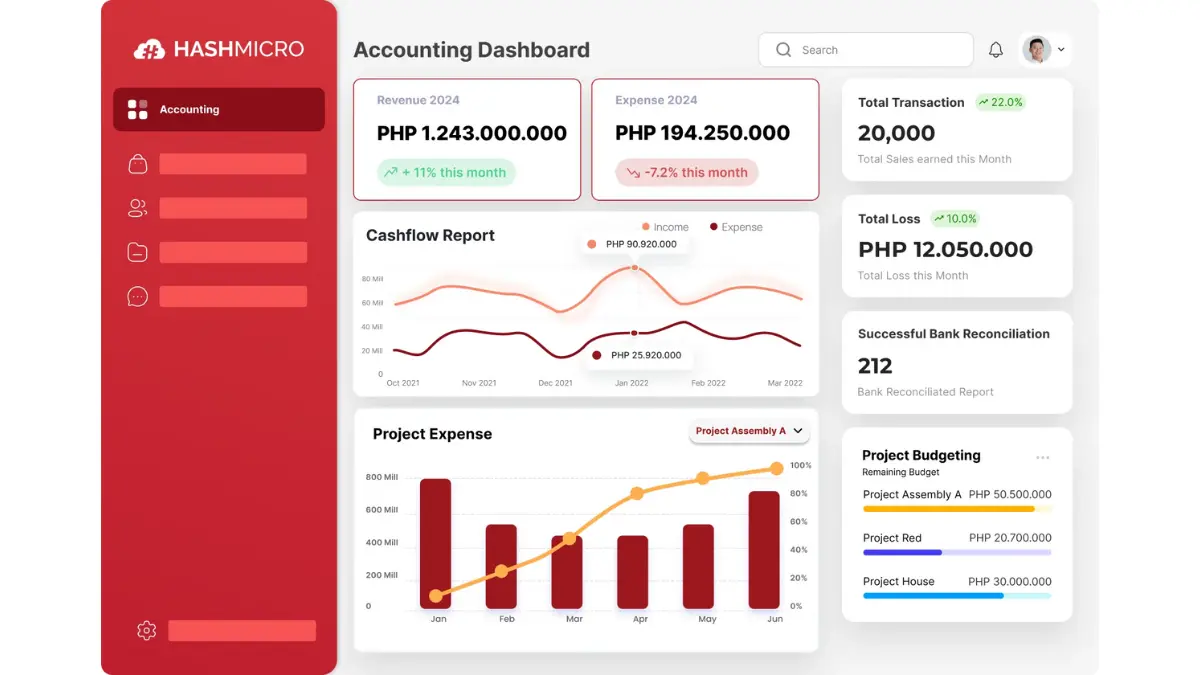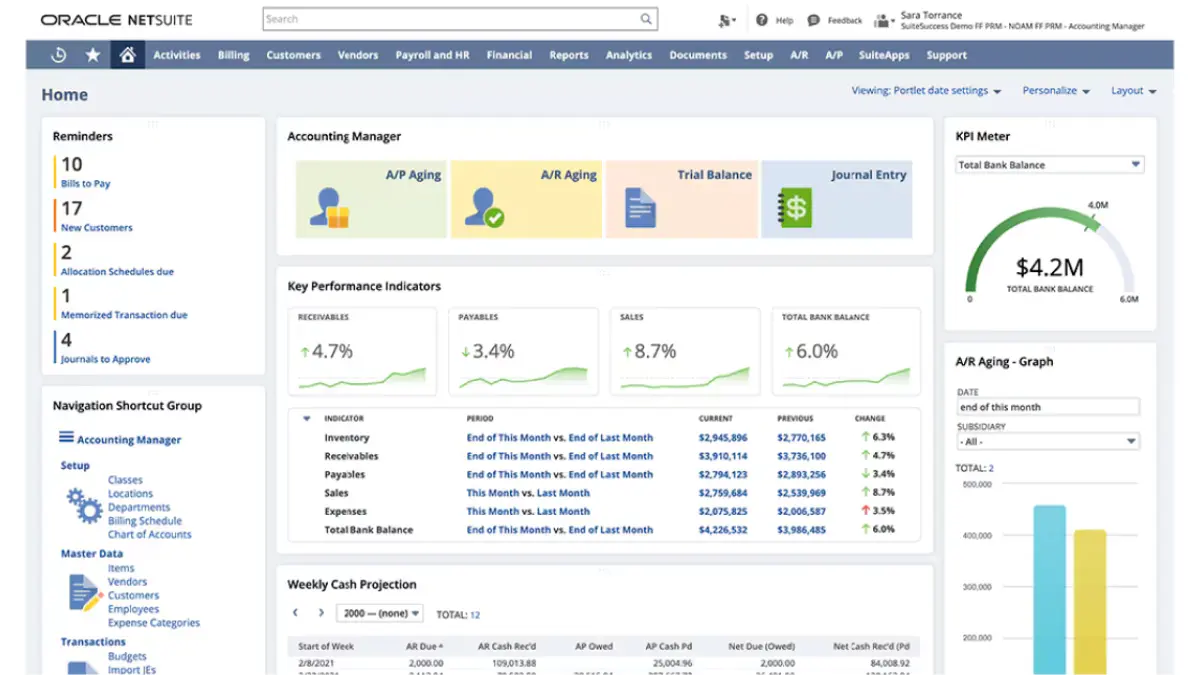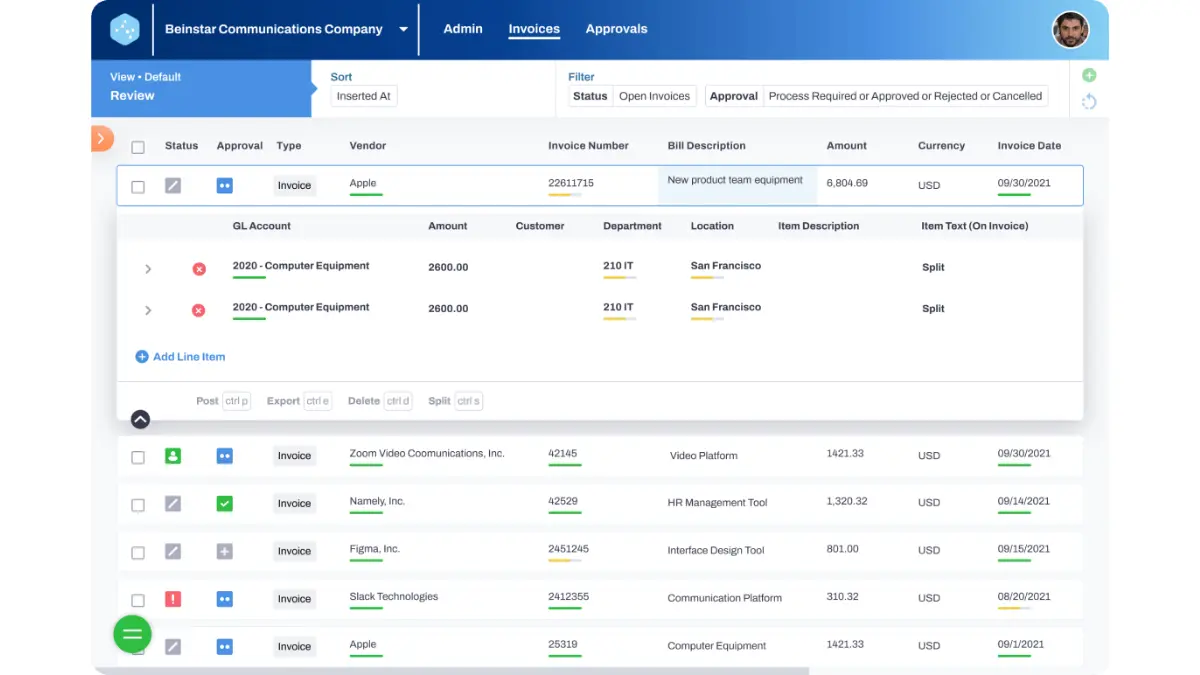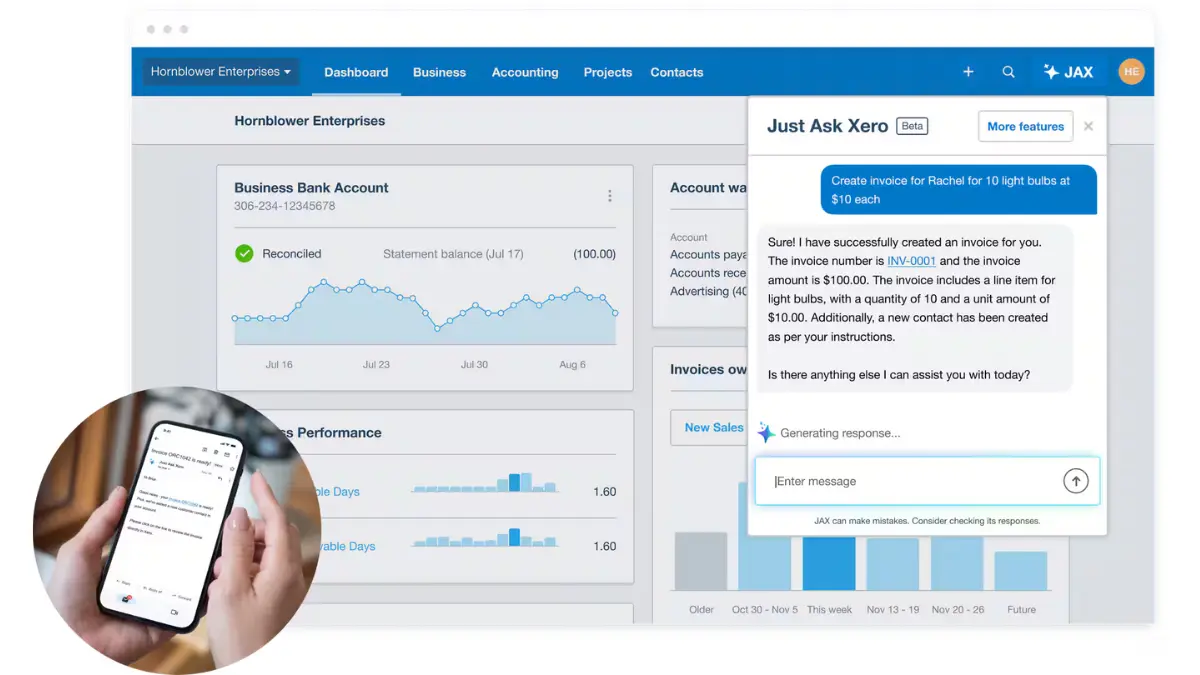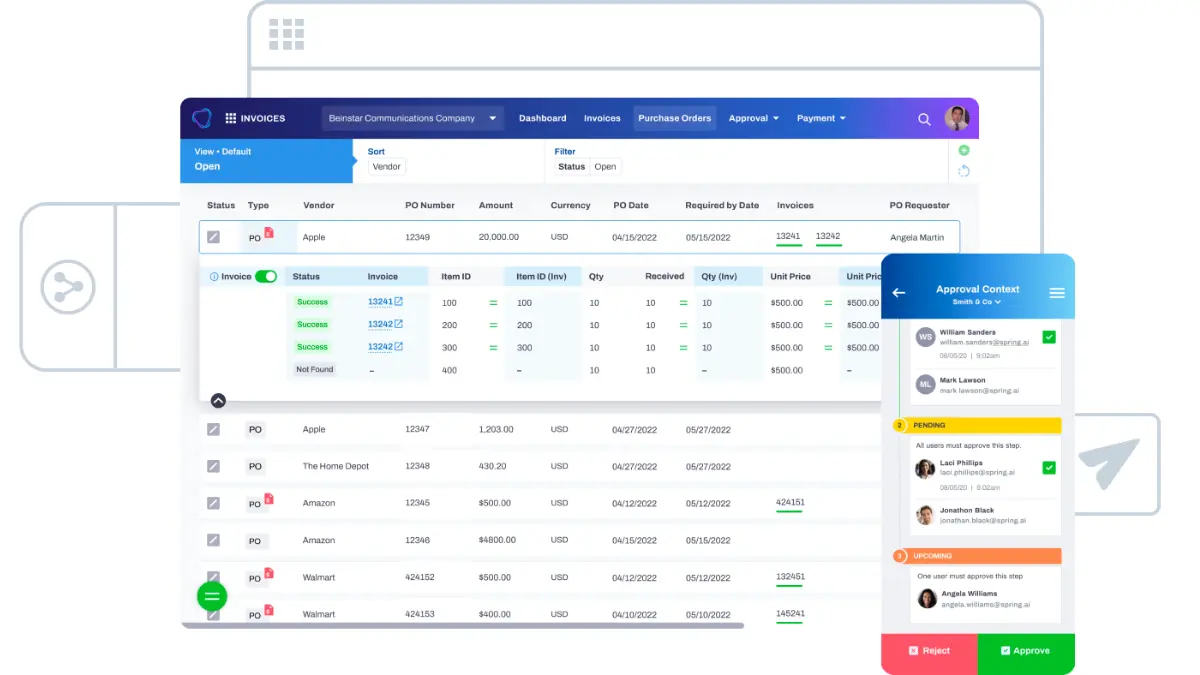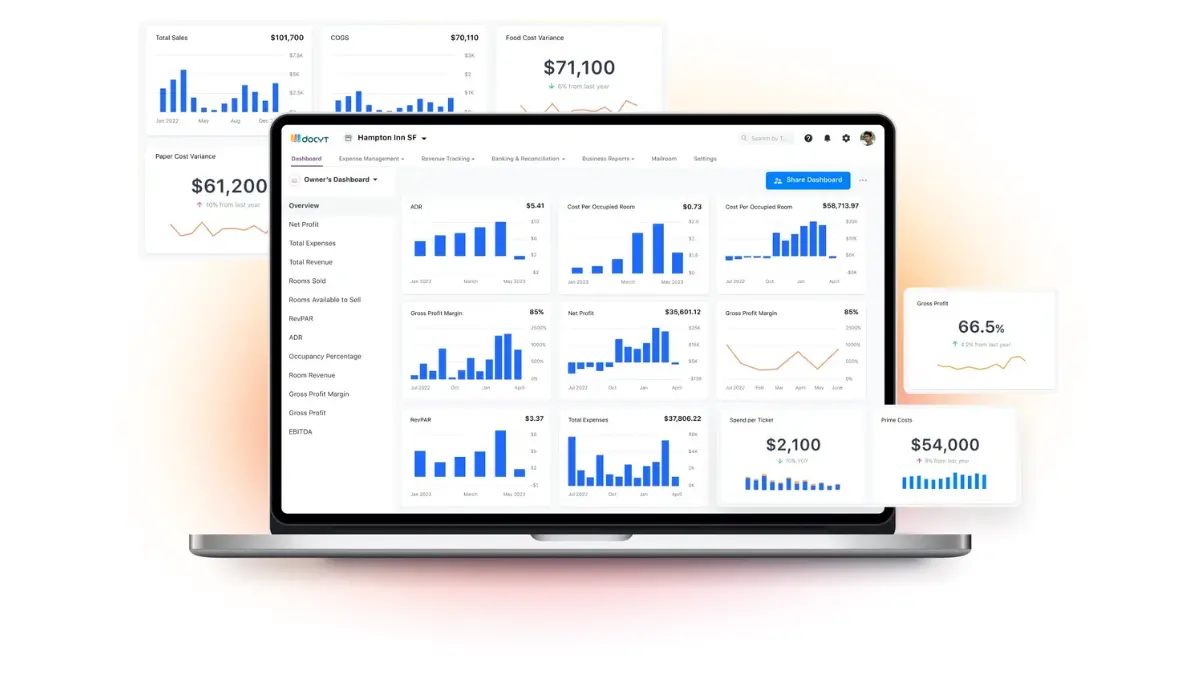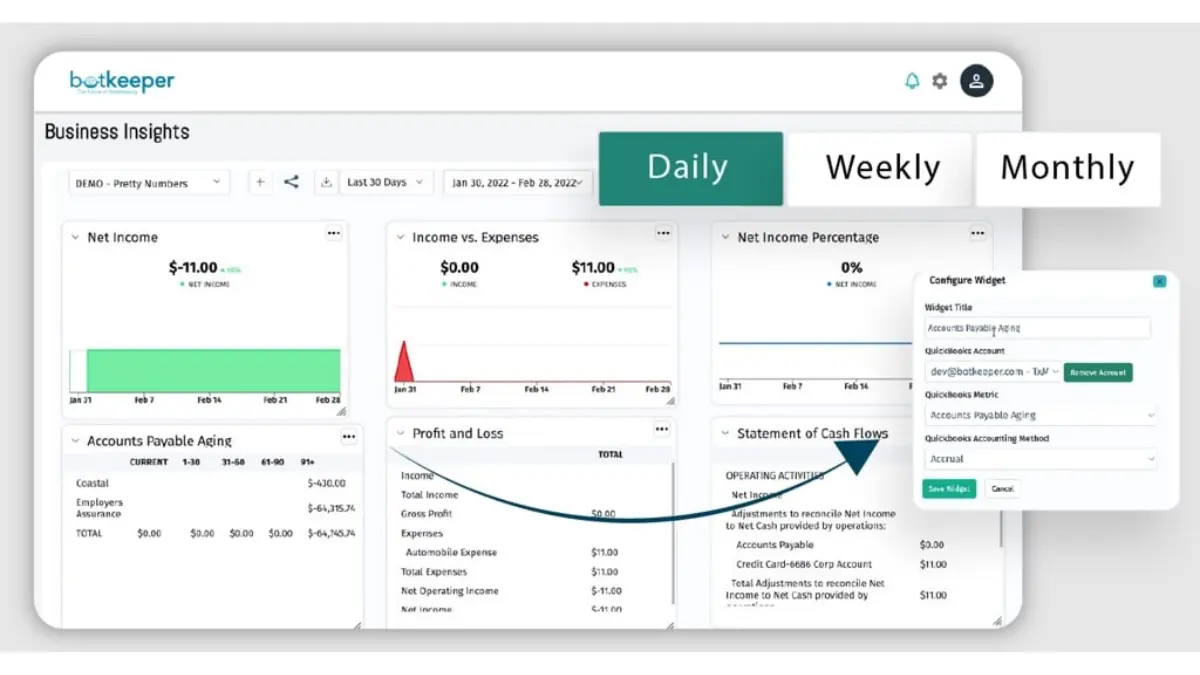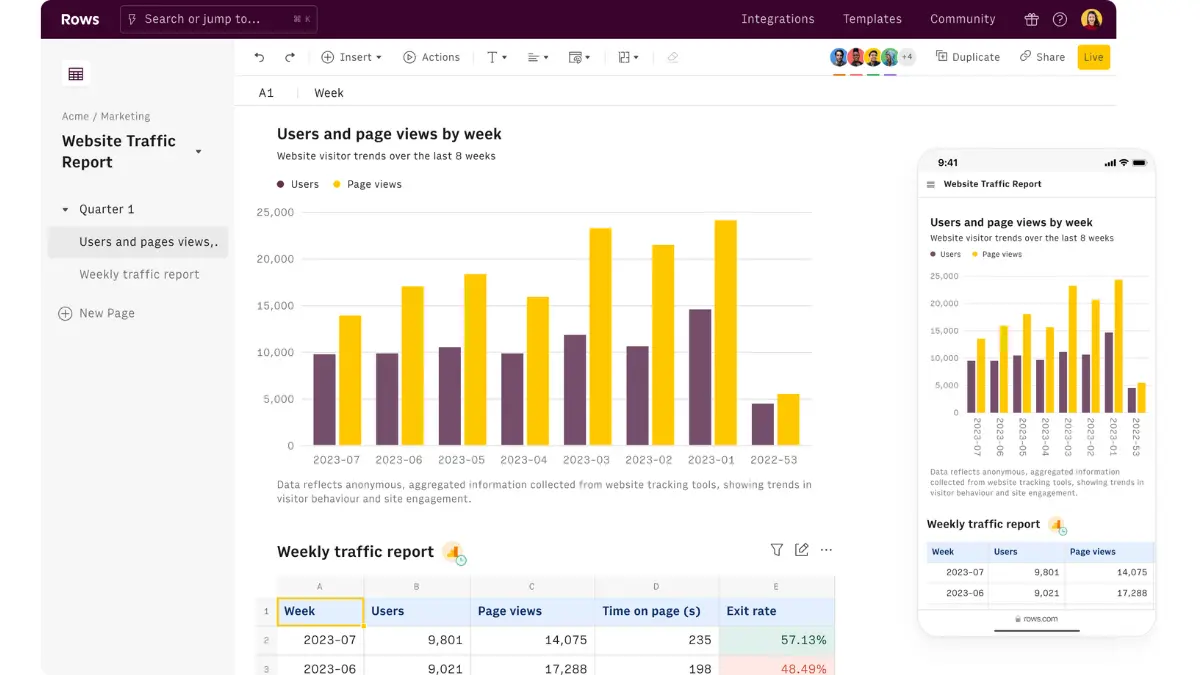The advent of Artificial Intelligence (AI) in accounting software is transforming the financial landscape. AI enables businesses to automate routine tasks and gain deeper analytical insights. This shift streamlines operations and empowers financial professionals to contribute more strategically to organizational growth.
Despite its advantages, adopting AI in accounting is not without hurdles. Managers frequently face issues such as integrating new technologies with legacy systems, addressing data privacy concerns, and bridging the skills gap among staff to utilize AI tools effectively.
Research in the Philippines highlights that while AI improves accuracy and efficiency, many firms are still in the early stages of adoption. That’s where HashMicro Accounting Software comes in, making AI integration seamless and helping businesses streamline their financial operations quickly.
Understanding these challenges is crucial for businesses aiming to stay competitive. In this article, we explore the top AI-powered accounting software solutions available in the Philippines, providing you with the knowledge to choose the right tools to enhance your financial operations.
Table of Contents

Key Takeaways
|
What is AI in Accounting?
AI in accounting refers to integrating artificial intelligence technologies—such as machine learning and natural language processing—into everyday accounting processes. This innovation allows firms to automate tasks like financial reporting, auditing and compliance, fraud detection, and data analysis with greater accuracy and speed.
By using AI in accounting software, businesses can significantly improve efficiency, reduce operational costs, and minimize the risk of human error. It also provides data-driven insights that empower professionals to make smarter, faster decisions across various financial functions.
As more firms recognize the strategic value of AI for accounting, adoption continues to accelerate—especially with tools that assist in forecasting, cash flow management, and workflow automation. With 71% of accounting professionals expecting substantial industry changes and 80% of CFOs planning increased AI investment, it’s clear that AI accounting is no longer optional—it’s the future of AI in finance.
How is AI Used in Accounting?
AI in accounting is revolutionizing how financial professionals work by automating manual processes, improving accuracy, and generating actionable insights. From processing invoices to detecting fraud and forecasting cash flow, AI for accounting streamlines essential operations across the board.
Below are some of the most impactful ways modern businesses use AI in accounting software:
- Invoice processing and reconciliation: AI accounting tools automate the tedious process of invoice handling by scanning documents, extracting data, and matching them against purchase records. This reduces manual data entry, minimizes human error, and speeds up reconciliation for accurate financial reporting.
- Fraud detection: AI for accounting plays a critical role in fraud detection by analyzing large volumes of transactions to identify unusual patterns and anomalies. It enhances the efficiency of audit processes and provides accountants with real-time alerts on suspicious activities.
- Predictive financial analysis: With machine learning, AI in accounting software can analyze historical data to forecast financial outcomes such as cash flows and revenue trends. These predictive insights help businesses make informed budgeting, investments, and risk management decisions.
- Budgeting and forecasting: AI-powered budgeting and forecasting tools streamline the process by analyzing current and past financial data to generate accurate predictions. This enables businesses to create agile financial plans that support strategic growth and early risk detection.
- Tax compliance and preparation: AI accounting systems assist in identifying tax deductions and credits, optimizing tax filings, and reducing liabilities. They also help ensure compliance by detecting errors or omissions in tax documents before submission.
- Bookkeeping and data entry: AI in accounting software simplifies bookkeeping by automatically classifying transactions, recording entries, and organizing financial records. Though AI accelerates the process, human oversight ensures accuracy and adds contextual understanding.
- Audit support: AI audit tools review financial records for consistency and compliance, ensuring report accuracy. These systems also aid in document management, helping auditors quickly access and verify essential data, ultimately saving time and effort.
10 Best AI in Accounting Software 2025
As accounting becomes more complex and time-sensitive, leveraging AI in accounting software has become essential for forward-thinking companies. These intelligent platforms automate routine processes and unlock real-time insights that drive strategic decision-making.
In this section, we highlight ten of the best AI-powered accounting software solutions in 2025—each chosen for their innovation, reliability, and ability to streamline financial workflows:
1. HashMicro AI in Accounting Software
HashMicro is a leading provider of AI-based accounting solutions in Malaysia through its intelligent, fully integrated AI in ERP system. It is designed to automate complex financial tasks, improve reporting accuracy, optimize internal processes, and provide real-time insights for faster decision-making.
If you want to streamline your financial operations, why not register for a free demo with HashMicro today? This hands-on session lets you explore how the software automates daily accounting workflows, reduces manual errors, and enhances strategic planning tailored to your business needs.
Why did we choose this software? We recommend HashMicro because of its proven performance, intuitive interface, and strong local support. Trusted by many Southeast Asian companies, Hashy AI for finance combines intelligent automation and predictive analytics to help businesses scale efficiently, improve financial accuracy, and gain complete visibility over their financial health.
Key Features:
- Seamless Bank Integrations: HashMicro integrates directly with your bank accounts to automate the reconciliation and payment processes, removing the need for manual data entry. This enhances transaction accuracy and speeds up your financial workflows, allowing your team to focus on strategic tasks.
- AR Collector: Hashy AI automatically follows up with customers regarding overdue invoices and Statements of Account (SoA), ensuring faster collections. It also allows you to create invoices on the go, maintaining efficient cash flow management.
- Multi-Dimensional Financial Analysis: With multi-level analytical tools and business process automation, you can compare financial statements across branches, projects, or departments. This feature delivers valuable insights for performance tracking and better decision-making to optimize business operations.
- AP Payables: Hashy AI simplifies vendor communication by providing real-time updates on payables. This helps streamline accounts payable processes and ensures timely payments, keeping your relationships with vendors strong and transparent.
- Budgeting, Forecasting, and Cash Flow Management: The system automates the creation of budgets, tracks expenses, and visualizes progress using tools like S-curves and cash flow forecasts. This enables businesses to manage liquidity and proactively plan for future financial needs.
- Financial Analysts: Hashy AI helps financial analysts extract key insights from financial reports and plan budgets based on past trends. This feature optimizes budget allocation and enables more accurate forecasting and decision-making.
- Financial Statements & Report Customization: Generate complete financial statements with budget comparisons and customized formats for invoices, receipts, and e-documents. This ensures your financial reports align with internal standards and comply with local regulations, including those set by the BIR.
- Automated Tax Compliance for the Philippines: The system automates VAT calculations and withholding tax records and generates BIR-compliant reports using real-time accounting data. This eliminates manual errors, improves audit preparedness, and ensures your business complies with local tax laws.
- Strong Internal Controls & Matching Mechanisms: Advanced features like 3-way matching (between invoices, delivery orders, and sales orders) and equity movement reports provide complete transparency. These controls enhance accuracy and traceability, reducing fraud risks and ensuring robust financial oversight.
- Intercompany Transactions & Consolidation: Automating intercompany transactions and consolidating financial reports across multiple entities ensures consistent, streamlined group-level reporting. This feature simplifies financial management for businesses with complex organizational structures.
Pros and Cons of HashMicro AI in Accounting Software:
| Pros | Cons |
|
|
2. NetSuite AI in Accounting Software
Owned by Oracle, NetSuite is a globally recognized cloud ERP solution with decades of innovation in financial management. Known for its scalability and end-to-end visibility, NetSuite helps businesses automate financial operations with built-in AI tools.
Its AI in accounting capabilities focus on intelligent data classification, dynamic approval workflows, and predictive analytics. NetSuite’s cloud-native architecture ensures secure access and smooth performance across departments.
Key Features:
- Automated general ledger and journal entries
- Predictive cash flow forecasting
- AI-powered transaction matching
- Intelligent anomaly detection
- Real-time KPI dashboards
- Role-based access and controls
Pros and Cons of NetSuite AI in Accounting Software:
| Pros | Cons |
|
|
3. Karbon AI
Karbon began as a collaborative work management platform for accounting firms and has since evolved to embed intelligent automation across workflows. Designed with accountants in mind, Karbon AI empowers firms to manage communication, workflows, and client relationships more effectively.
Its AI capabilities assist with task prioritization, email triage, and time estimations. The tool improves team productivity while maintaining visibility and control across engagements.
Key Features:
- AI-assisted task management
- Smart email categorization and reply suggestions
- Predictive workflow insights
- Time and capacity tracking
- Seamless CRM integration
- Centralized communication hub
Pros and Cons of Karbon AI:
| Pros | Cons |
|
|
4. Xero AI in Accounting
Xero is a widely adopted cloud accounting solution that has invested heavily in AI to support small to mid-sized businesses. With a sleek interface and a strong ecosystem of third-party apps, Xero’s AI simplifies bank reconciliations, invoice matching, and cash flow forecasting.
Its machine learning engine gets smarter over time, reducing manual input and suggesting classifications. Xero also stands out for its intuitive UI and mobile-first experience.
Key Features:
- Bank reconciliation suggestions
- Automated invoice matching
- Real-time cash flow dashboard
- Smart categorization of transactions
- Mobile-friendly AI insights
Strong ecosystem of add-ons
Pros and Cons of Xero AI in Accounting:
| Pros | Cons |
|
|
5. Vic.ai
Vic.ai is an AI-first platform that automates accounting workflows with minimal human intervention. Explicitly designed for finance teams and AP departments, Vic.ai offers AI invoice processing, approval routing, and predictive cost management.
The platform leverages deep learning to improve over time, learning from past behavior to enhance accuracy. Vic.ai seamlessly integrates with ERP systems and is known for significantly reducing AP cycle times.
Key Features:
- AI-driven invoice processing
- Smart approval workflows
- Real-time cost predictions
- AI confidence scoring
- Seamless ERP integrations
- AP performance analytics
Pros and Cons of Vic.ai:
| Pros | Cons |
|
|
6. Docyt AI in Accounting
Docyt is an AI-powered accounting automation platform to streamline finance teams’ back-office operations. It offers end-to-end automation from document ingestion to real-time reconciliation.
Focusing on expense management, audit preparation, and intelligent categorization, Docyt eliminates much of the traditional data entry involved in bookkeeping. The software also offers a mobile-first experience with powerful document-scanning capabilities.
Key Features:
- AI document scanning and ingestion
- Expense tracking and classification
- Real-time reconciliation
- Continuous audit trail generation
- Multi-location financial reporting
- Mobile-friendly automation
Pros and Cons of Docyt AI in Accounting:
| Pros | Cons |
|
|
7. Bluedot AI Accounting
Bluedot AI combines financial intelligence with automation, enhancing visibility and control over cash flow. The platform uses AI to monitor transactions, flag irregularities, and support proactive decision-making.
Bluedot excels in spend tracking and alert systems that help companies manage financial risks. It also supports multi-bank integrations for seamless reconciliation.
Key Features:
- AI-powered cash flow monitoring
- Intelligent spend alerts
- Budget anomaly detection
- Dashboard customization
Pros and Cons of Bluedot AI Accounting:
| Pros | Cons |
|
|
8. Botkeeper
Botkeeper is a virtual accounting platform that combines machine learning and human oversight to deliver bookkeeping services. It targets firms and growing businesses and automates transaction categorization, financial statement generation, and bank reconciliations.
The platform continuously learns from data to improve accuracy and reduce workload. It also includes a robust analytics dashboard and customizable reports.
Key Features:
- Automated transaction categorization
- AI-supported reconciliations
- Real-time financial dashboards
- CPA support for data validation
- Machine learning-backed accuracy improvements
- Automated reporting
Pros and Cons of Botkeeper:
| Pros | Cons |
|
|
9. Rows AI
Rows is a modern spreadsheet tool with built-in AI capabilities. It allows finance professionals to build live dashboards and models easily. Its AI assistant supports formula generation, trend analysis, and automated report creation.
Rows enable integrations with multiple data sources, making it highly flexible for dynamic financial modeling. It’s ideal for agile teams that prefer working in spreadsheet environments with enhanced capabilities.
Key Features:
- AI assistant for spreadsheet automation
- Smart financial modeling and dashboards
- Real-time data syncing
- Pre-built finance templates
- Third-party API integrations
Predictive analytics tools
Pros and Cons of Rows AI:
| Pros | Cons |
|
|
10. Receipt AI
Receipt AI focuses on automating expense management by using computer vision and AI to scan, categorize, and store receipts. Designed to reduce manual expense reporting, it integrates with various accounting platforms to sync data instantly.
The mobile-first tool allows users to capture receipts on the go and generate real-time expense reports. It’s beneficial for businesses with heavy travel or operational spending.
Key Features:
- AI-powered receipt scanning
- Automatic expense categorization
- Mobile-first interface
- Integration with leading accounting tools
- Real-time expense reporting
- Receipt storage and compliance trail
Pros and Cons of Receipt AI:
| Pros | Cons |
|
|
Benefits of AI in Accounting
Adopting AI in accounting offers numerous advantages for businesses looking to enhance their financial operations. From improving accuracy to boosting productivity, AI for accounting is reshaping how finance teams operate in today’s fast-paced environment.
Here are the top benefits businesses in the Philippines can enjoy by using AI in accounting software:
1. Increased efficiency and automation
AI in accounting automates repetitive and time-consuming tasks such as data entry, invoice processing, and transaction categorization. This allows accounting professionals to focus on higher-value activities like analysis and strategic planning.
By reducing manual work, companies can process large volumes of financial data faster and with fewer errors. As a result, teams become more productive while maintaining operational accuracy.
2. Enhanced accuracy and reduced human error
Accounting tasks handled manually are often vulnerable to mistakes, especially when dealing with complex data. AI accounting systems significantly lower this risk by applying machine learning algorithms consistently following set rules and patterns.
With fewer errors in financial records, businesses can rely on more accurate reporting and forecasting. This improved precision builds greater trust in the company’s financial health.
3. Cost savings in the long run
Although implementing AI in accounting software may require an initial investment, it quickly pays off through reduced labor costs and improved process efficiency. Automating tasks means businesses need fewer hours of manual effort to get the same or better results.
Over time, this leads to significant savings and better resource allocation across departments. In a competitive market, cost efficiency can be a considerable advantage.
4. Real-time financial insights and forecasting
AI for accounting doesn’t just organize financial data—it analyzes it in real time to uncover trends and provide actionable insights. This empowers decision-makers to respond swiftly to changes in cash flow, revenue, or expenses.
With predictive analytics, companies can confidently forecast financial outcomes and prepare for future scenarios. Having access to these insights enables more informed, strategic business planning.
5. Improved compliance and fraud detection
AI in accounting software helps ensure compliance with tax regulations and industry standards by identifying inconsistencies and flagging potential issues. It also supports fraud detection by monitoring transaction patterns and alerting teams to suspicious activity.
These capabilities reduce the chances of financial misstatements and legal complications, allowing businesses to operate with greater peace of mind and integrity.
6. Better decision-making and strategic planning
By leveraging AI-powered financial insights, companies better understand their financial performance and future opportunities. This leads to more confident, data-driven decision-making at every level of the organization.
AI accounting tools can simulate scenarios to guide long-term planning and investment strategies. Ultimately, this allows businesses to stay agile and competitive in a constantly changing market.
Conclusion
AI in accounting software transforms how businesses handle finances by automating routine tasks, improving accuracy, and providing real-time insights. For companies in the Philippines, it’s a vital tool to enhance efficiency and stay competitive in a fast-paced digital economy.
HashMicro Accounting Software is a standout solution, equipped with Hashy AI to automate collections, streamline vendor communications, and simplify invoice creation. It also supports financial analysis, trend-based budget planning, and smooth reconciliation between bank statements and system records, boosting productivity and accuracy.
Ready to experience the future of financial management? Book your free demo with HashMicro today and discover how intelligent accounting can drive smarter decisions and business growth.





